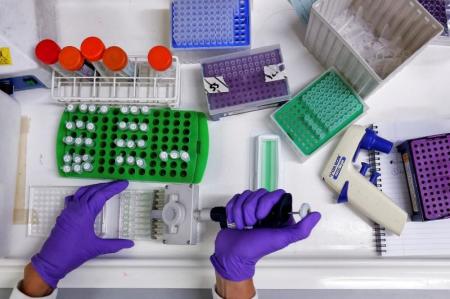British scientists accidentally discover cancer breakthrough

British scientists say they have accidentally discovered a new type of immune cell which may help in developing a therapy to treat all cancers.
The new type of killer T-cell that researchers at Cardiff University have discovered offers hope of a “one-size-fits-all” cancer therapy, the university said on its website about the study published in Nature Immunology.
The CAR-T that is currently used widely is successful only for a few types of cancers, and not for solid tumours, which make up the vast majority of cancers. But the newly discovered T-cells are equipped with a new type of T-cell receptor, which “recognises and kills most human cancer types, while ignoring healthy cells.”
“Previously nobody believed this could be possible,” Prof. Andrew Sewell, lead author on the study and an expert in T-cells from Cardiff University’s School of Medicine, said.
“Current TCR-based therapies can only be used in a minority of patients with a minority of cancers … Cancer-targeting via MR1-restricted T-cells is an exciting new frontier — it raises the prospect of a ‘one-size-fits-all’ cancer treatment; a single type of T-cell that could be capable of destroying many different types of cancers across the population.”
Asked if it was possible for someone to be completely immune to cancer, Sewell told The Telegraph, “Possibly. This immune cell could be quite rare, or it could be that lots of people have this receptor but for some reason it is not activated. We just don't know yet.”
To follow up on the discovery, researchers are now conducting experiments to look at the precise molecular mechanism that the new TCR uses to distinguish between healthy cells and cancer.
The researchers are hopeful that they may do so “by sensing changes in cellular metabolism which causes different metabolic intermediates to be presented at the cancer cell surface by MR1,” the university said.
This new approach is likely to be tested in patients towards the end of this year following further safety testing, it added.
“There are plenty of hurdles to overcome. However, if this testing is successful, then I would hope this new treatment could be in use in patients in a few years’ time,” said Sewell.
Prof. Oliver Ottmann, Cardiff University’s Head of Haematology, said, “This new type of T-cell therapy has enormous potential to overcome current limitations of CAR-T, which has been struggling to identify suitable and safe targets for more than a few cancer types.”





















